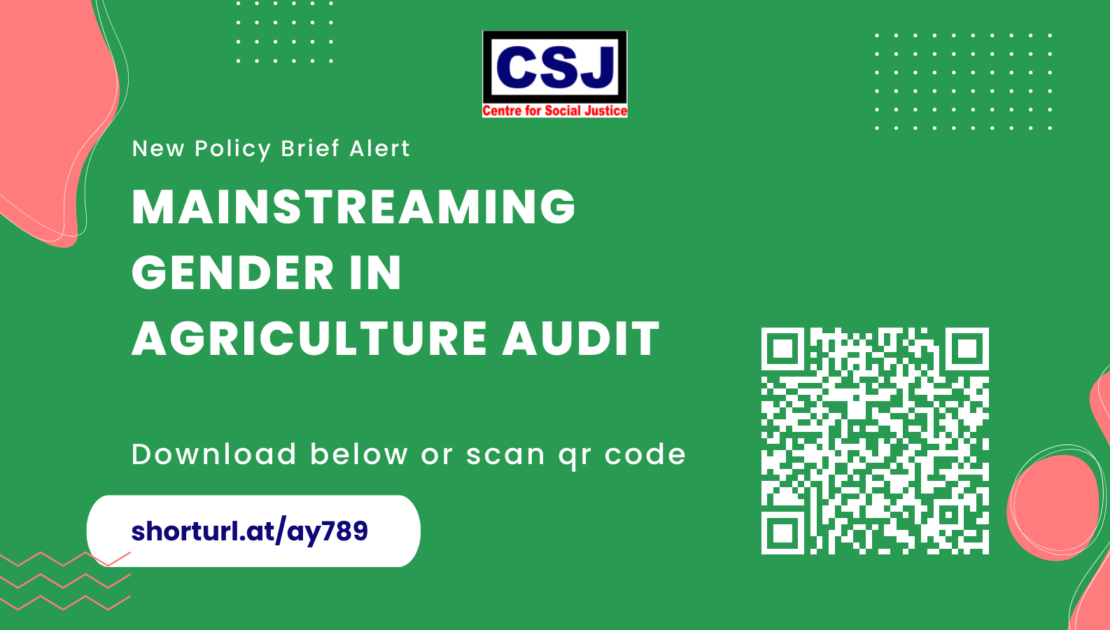SWOFON Demands Gender Audit of Agriculture Programmes in Nigeria
SWOFON Demands Gender Audit of Agriculture Programmes in Nigeria
-
December 11, 2022
- Posted by: Center for Social Justice

The coalition of women farmers’ associations and groups across Nigeria known as Small-scale Women Farmers Organisation of Nigeria (SWOFON), with technical support from the Centre for Social Justice (CSJ) have called for a gender audit of agriculture programmes in Nigeria.
This, they said is premised on the fact that Nigeria is a State Party to a multiplicity of international and regional standards that guarantee gender equality and non-discrimination in public and private life.
Also, women constitute 49% of Nigeria’s population. However, according to the National Gender Policy in Agriculture “Women carry out about 80% of agricultural production, 60% of agricultural processing activities and 50% of animal husbandry and related activities, yet women have access to less than 20% of agricultural assets.”
Majority of farmers in Nigeria are smallholder farmers and majority of the smallholder farmers are women. Agriculture currently contributes 22.8% of Nigeria’s GDP and employs 25% of the working population. The share of informal sector agriculture contribution to gross domestic product (GDP) is 91.8% as against 8.2% from the formal sector. However, the critical needs of small-scale women farmers are ignored in budgetary provisions and the allocation of public resources.
A gender-transformative auditing framework refers to a number of processes, tools and techniques used to assess the impact of government budgets on men, women, boys and girls. It is not a separate audit for women and men but it is used as a basis for ascertaining “who is benefiting what” or who is suffering public resource allocation prejudice and discrimination.
This inevitably leads to advocacy for the re-ordering of budgetary expenditure and redefinition of priorities, in favour of marginalised and poor segments of society. This would take cognisance of women’s disadvantaged position because women constitute a greater percentage of persons living in poverty. However, it needs to be noted that budgets are presented as aggregate figures without reference to men and women, boys and girls.
This leads to what experts have described as gender blindness in budgeting, auditing, policy formulation, implementation and evaluation. A gender-blind budget and audit process marginalizes and blocks livelihood options for one-half of society, lacks accountability, creates winners and losers, encourages discrimination, and retards service delivery.
Against the background of the foregoing, SWOFON makes the following recommendations: 1. Full support for a Federal Audit Reform bill to be enacted into law. This should strengthen the independence, funding, powers and functions, follow-up on audit recommendations, etc. 2. Clear the backlog of audits and ensure that future audits are timely. The 2020 federal audit report is overdue and 2021 is also due.
SWOFON also demands the mainstreaming of gender-aware tools and processes (including benefit incidence analysis) in future general and special audits. This is in recognition of the aphorism that improvements in agricultural productivity do not depend solely on generating additional resources, but also on the efficient utilization of available resources, and the effective and equitable deployment of resources within different population groups in the country, especially for the benefit of small-scale women farmers who produce the bulk of agricultural produce.
SWOFON also asks that the government considers a five-year special audit of gender in agricultural budgeting 2016-2021 and also to establish a process of engaging Nigerians including small-scale women farmers in audit work through dissemination of audit findings and follow-up on audit recommendations.
